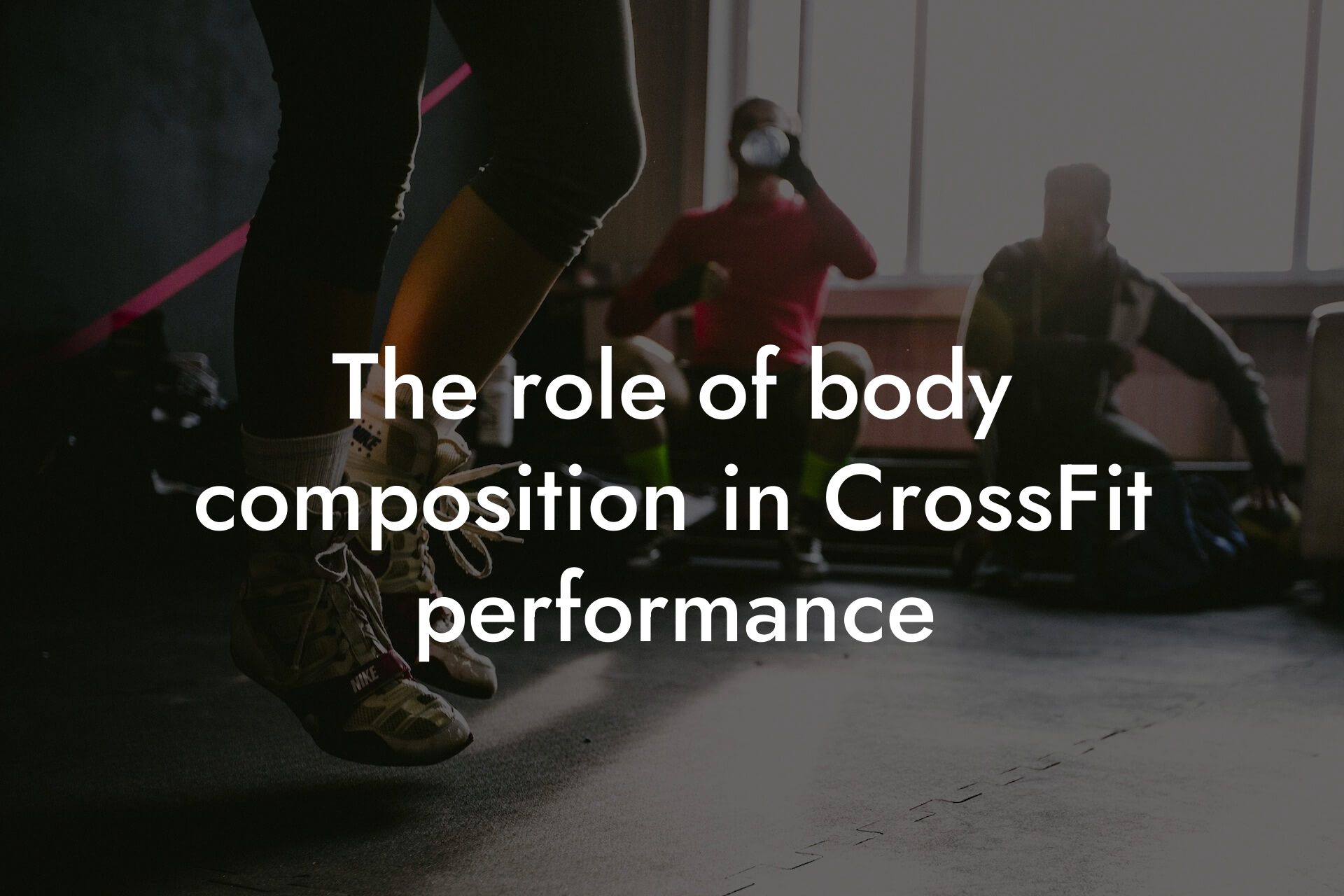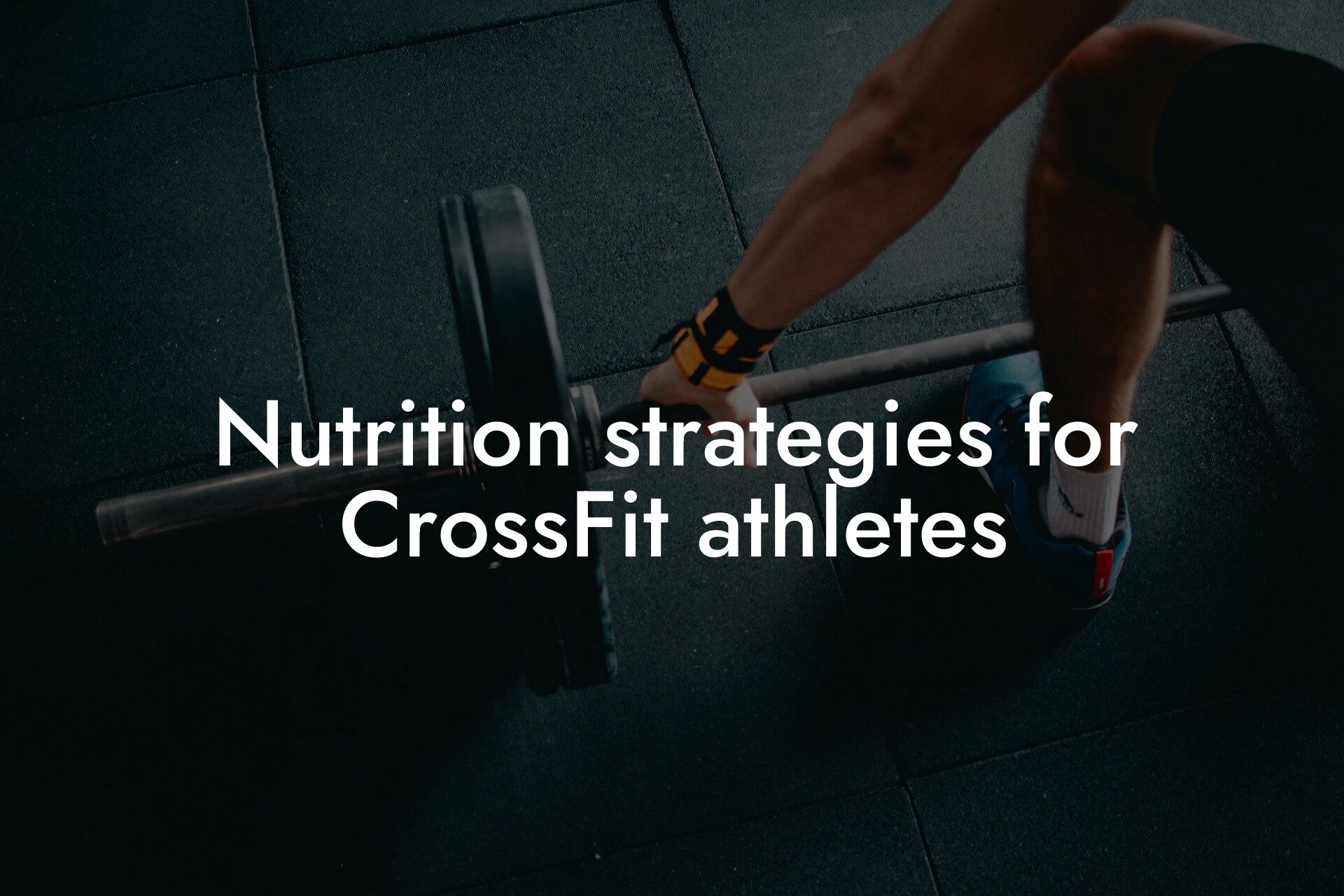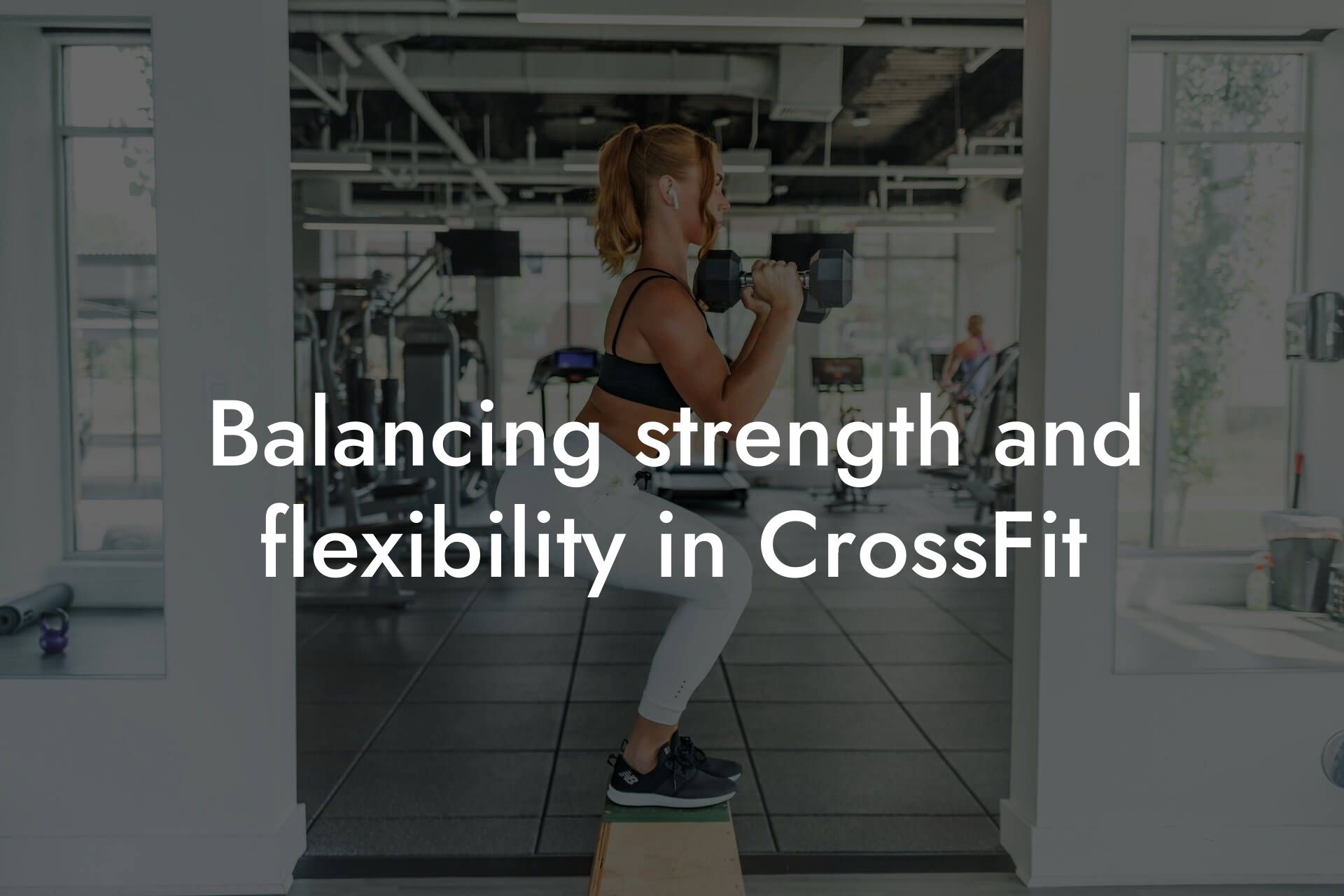As a CrossFit enthusiast, you're likely no stranger to pushing your body to its limits. Whether you're a seasoned competitor or just starting out, you know that optimizing your physical performance is key to achieving your goals. One powerful tool that can help you do just that is a DEXA (Dual-Energy X-ray Absorptiometry) scan. In this article, we'll delve into the world of DEXA scans and explore how they can benefit CrossFit enthusiasts like you.
Table of Contents
What is a DEXA Scan?
A DEXA scan is a non-invasive, low-radiation imaging test that measures bone density, body composition, and lean muscle mass. It's commonly used to diagnose osteoporosis, but its applications extend far beyond that. A DEXA scan can provide a comprehensive picture of your body's composition, including the percentage of body fat, lean mass, and bone density. This information can be invaluable for athletes looking to optimize their performance and achieve their fitness goals.
How Does a DEXA Scan Work?
During a DEXA scan, you'll lie down on a flat table, and a scanner will pass over your body, emitting low-level X-rays. These X-rays are absorbed by your body in different ways, depending on the density of your bones and tissues. The scanner then uses this information to create a detailed image of your body composition. The entire process typically takes around 10-15 minutes, and it's completely painless.
What Can a DEXA Scan Reveal?
A DEXA scan can provide a wealth of information about your body, including:
- Bone density: A DEXA scan can measure the density of your bones, helping to identify any potential issues with osteoporosis or bone loss.
- Body fat percentage: By measuring the amount of fat in your body, a DEXA scan can help you track changes in your body composition over time.
- Lean muscle mass: A DEXA scan can provide an accurate measurement of your lean muscle mass, helping you to optimize your training and nutrition.
- Visceral fat: A DEXA scan can measure the amount of fat in your abdominal cavity, which is a key indicator of overall health.
- Regional body composition: A DEXA scan can provide detailed information about the composition of specific regions of your body, such as your arms, legs, and torso.
How Can a DEXA Scan Benefit CrossFit Enthusiasts?
As a CrossFit enthusiast, a DEXA scan can provide valuable insights that can help you take your training to the next level. Here are just a few ways that a DEXA scan can benefit you:
By providing an accurate measurement of your body fat percentage, a DEXA scan can help you optimize your nutrition and training to achieve your desired body composition. This can be especially useful for athletes looking to improve their performance in competitions or achieve a specific aesthetic goal.
A DEXA scan can also help you identify areas of your body that may be prone to injury. By measuring the density of your bones, a DEXA scan can identify any potential issues with osteoporosis or bone loss, allowing you to take proactive steps to prevent injuries.
Furthermore, a DEXA scan can provide valuable insights into your overall health and wellness. By measuring your visceral fat and lean muscle mass, a DEXA scan can help you identify potential health risks and take steps to mitigate them.
How Often Should I Get a DEXA Scan?
The frequency of DEXA scans depends on your individual goals and needs. If you're looking to track changes in your body composition over time, it's recommended to get a DEXA scan every 6-12 months. This can help you identify trends and make adjustments to your training and nutrition accordingly.
If you're looking to optimize your performance for a specific competition or event, you may want to consider getting a DEXA scan more frequently, such as every 3-6 months. This can help you fine-tune your training and nutrition to achieve peak performance.
What to Expect During a DEXA Scan
During a DEXA scan, you'll typically be asked to lie down on a flat table and remain still for around 10-15 minutes. You'll be required to remove any metal objects, such as jewelry or glasses, and wear a hospital gown or comfortable clothing.
The scanner will then pass over your body, emitting low-level X-rays. You may hear a slight humming noise during the scan, but you won't feel anything.
After the scan, a technician will analyze the results and provide you with a detailed report outlining your body composition, bone density, and other key metrics.
In conclusion, a DEXA scan is a powerful tool that can provide valuable insights for CrossFit enthusiasts. By measuring bone density, body composition, and lean muscle mass, a DEXA scan can help you optimize your training and nutrition, identify potential health risks, and achieve your fitness goals. Whether you're a seasoned competitor or just starting out, a DEXA scan can help you take your performance to the next level.
If you're interested in learning more about how a DEXA scan can benefit you, contact us at Tano Performance Group to schedule a scan today. Our team of experts will work with you to provide a comprehensive body assessment and help you achieve your fitness goals.
Frequently Asked Questions
What is a DEXA scan, and how does it work?
A DEXA (Dual-Energy X-ray Absorptiometry) scan is a non-invasive, low-radiation medical imaging test that measures bone density, body composition, and fat distribution. It uses X-rays to produce detailed images of the body's internal structures, providing accurate measurements of bone mineral density, lean mass, and fat mass.
Why do CrossFit enthusiasts need DEXA scans?
CrossFit enthusiasts can benefit from DEXA scans as they provide valuable insights into body composition, allowing for optimized training and nutrition plans. DEXA scans help identify areas of improvement, track progress, and reduce the risk of injuries and chronic diseases.
What are the benefits of DEXA scans for CrossFit athletes?
DEXA scans offer numerous benefits for CrossFit athletes, including: accurate body fat percentage measurement, identification of muscle imbalances, monitoring of bone density, and personalized nutrition and training planning.
How does a DEXA scan differ from other body composition tests?
DEXA scans are more accurate and reliable than other body composition tests, such as skinfold measurements or bioelectrical impedance analysis (BIA). DEXA scans provide a comprehensive picture of body composition, including bone density, lean mass, and fat mass.
Is a DEXA scan painful or invasive?
No, a DEXA scan is a non-invasive, painless procedure that takes only a few minutes to complete. You will be asked to lie down on a table, and the scanner will pass over your body, taking images and measurements.
How long does a DEXA scan take?
A typical DEXA scan takes around 10-15 minutes to complete, depending on the type of scan and the individual's body size.
What do I need to do to prepare for a DEXA scan?
To prepare for a DEXA scan, avoid eating or drinking for at least 2 hours prior to the scan, wear loose, comfortable clothing, and remove any metal objects or jewelry that may interfere with the scan.
How often should I get a DEXA scan?
The frequency of DEXA scans depends on your individual goals and needs. For CrossFit enthusiasts, it's recommended to get a DEXA scan every 6-12 months to track progress and make adjustments to your training and nutrition plan.
Can I get a DEXA scan if I'm pregnant or breastfeeding?
It's generally recommended to avoid DEXA scans during pregnancy and breastfeeding, as the radiation exposure, although low, may pose a risk to the fetus or baby. Consult with your healthcare provider or a qualified medical professional for guidance.
What is the cost of a DEXA scan?
The cost of a DEXA scan varies depending on the location, provider, and type of scan. On average, a DEXA scan can cost anywhere from $50 to $200.
Is a DEXA scan covered by insurance?
Insurance coverage for DEXA scans varies depending on the provider and policy. Some insurance plans may cover DEXA scans for specific medical conditions or as part of a preventative care package.
What is the difference between a DEXA scan and a Bod Pod?
While both DEXA scans and Bod Pods measure body composition, they use different technologies and provide different information. DEXA scans measure bone density, lean mass, and fat mass, whereas Bod Pods measure body volume and density to estimate body fat percentage.
Can I get a DEXA scan if I have metal implants or prosthetics?
It's generally recommended to consult with your healthcare provider or a qualified medical professional before getting a DEXA scan if you have metal implants or prosthetics, as they may interfere with the scan or pose a risk to your safety.
How accurate are DEXA scans?
DEXA scans are highly accurate, with a margin of error of around 1-2% for bone density measurements and 2-3% for body composition measurements.
Can I get a DEXA scan if I'm under 18 years old?
DEXA scans are typically recommended for individuals over 18 years old, as the radiation exposure, although low, may pose a risk to developing bones and tissues. Consult with your healthcare provider or a qualified medical professional for guidance.
What is the radiation exposure from a DEXA scan?
The radiation exposure from a DEXA scan is very low, equivalent to a few days of natural background radiation. The scan is designed to minimize radiation exposure while providing accurate measurements.
How do I interpret the results of a DEXA scan?
A qualified healthcare professional or a certified DEXA scan technician will interpret the results of your DEXA scan, providing you with a detailed report and recommendations for improvement.
What can I do with the results of a DEXA scan?
With the results of a DEXA scan, you can: track progress, identify areas for improvement, optimize your training and nutrition plan, and reduce the risk of injuries and chronic diseases.
Can I get a DEXA scan at my local gym or fitness center?
Some gyms and fitness centers may offer DEXA scans, but it's essential to ensure that the scan is performed by a qualified technician and that the facility has the necessary equipment and expertise.
How does a DEXA scan help with injury prevention?
A DEXA scan can help with injury prevention by identifying muscle imbalances, bone density issues, and areas of high risk for injury, allowing you to take proactive steps to address these issues and reduce the risk of injury.
Can I use a DEXA scan to track my progress over time?
Yes, a DEXA scan is an excellent tool for tracking progress over time, allowing you to monitor changes in body composition, bone density, and muscle mass.
How does a DEXA scan help with nutrition planning?
A DEXA scan provides valuable insights into body composition, allowing you to create a personalized nutrition plan tailored to your specific needs and goals.
Can I get a DEXA scan if I have a pacemaker or other implantable device?
It's generally recommended to consult with your healthcare provider or a qualified medical professional before getting a DEXA scan if you have a pacemaker or other implantable device, as they may interfere with the scan or pose a risk to your safety.
Here are some related articles you might love...
- The role of body composition in CrossFit performance
- Nutrition strategies for CrossFit athletes
- Balancing strength and flexibility in CrossFit
- The importance of muscle recovery in CrossFit
- How to maintain bone density with CrossFit training
- Improving endurance for CrossFit competitions
- Strength training tips specific to CrossFit workouts
- Preventing injuries in CrossFit: A comprehensive guide
- Reducing body fat for better CrossFit performance
Zak Faulkner
Zak Faulkner is a leading authority in the realm of physical health and body composition analysis, with over 15 years of experience helping professionals optimise their fitness and well-being. As one the experts behind Tano Performance Group, Zak has dedicated his career to providing in-depth, science-backed insights that empower clients to elevate their physical performance and overall health.
With extensive knowledge of DEXA technology, Zak specializes in delivering comprehensive body assessments that offer precise data on body fat, muscle mass, bone density, and overall physique. His expertise enables individuals to make informed decisions and achieve their fitness goals with accuracy and confidence. Zak’s approach is rooted in a deep understanding of human physiology, combined with a passion for helping clients unlock their full potential through personalised strategies.
Over the years, Zak has earned a reputation for his commitment to excellence, precision, and client-focused service. His guidance is trusted by top professionals who demand the best when it comes to their health. Whether advising on fitness programs, nutritional strategies, or long-term wellness plans, Zak Faulkner’s insights are a valuable resource for anyone serious about taking their health and fitness to the next level.
At Tano Performance Group, Zak continues to lead our Content Team revolutionising how professionals approach their physical health, offering unparalleled expertise that drives real results.




